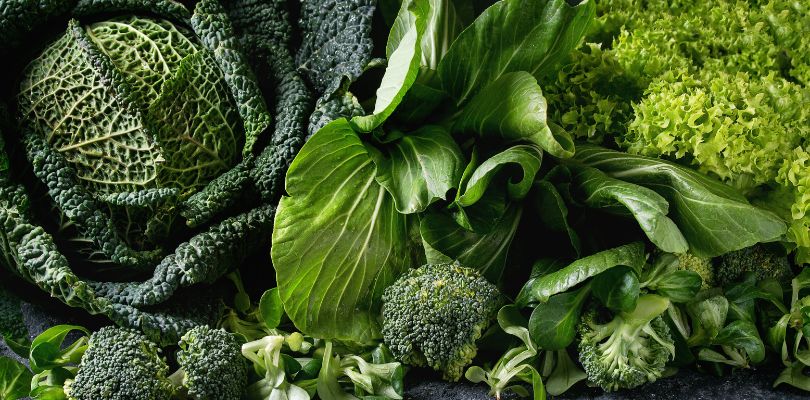Boost Your Cardiovascular Wellness
Heart health is a cornerstone of overall wellbeing and the foods we consume daily play an important role in maintaining the heart’s vigor. A heart-healthy diet not only lowers the risk of cardiovascular diseases, but also promotes sustained energy levels, balanced blood pressure and overall quality of life. In this article, we explore ten heart-healthy foods.
1. Whole Grains
Whole grains such as brown rice, quinoa, barley and whole wheat products are fundamental elements of a heart-healthy diet. Unlike refined grains that have been stripped of their fiber and nutrients, whole grains retain all the beneficial components of the grain kernel. The fiber in whole grains helps regulate blood sugar levels and contributes to a decrease in cholesterol. Additionally, these grains are rich in vitamins, minerals and antioxidants that support circulatory and metabolic health.
2. Leafy Green Vegetables
Leafy greens, such as spinach, kale, Swiss chard and collard greens, offer a treasure trove of heart-supportive nutrients. High in vitamins like A, C and K, and minerals like calcium and magnesium, these vegetables are recognized for their powerful antioxidant and anti-inflammatory properties that protect the cardiovascular system. Their high fiber content helps reduce cholesterol levels and promotes clean blood vessels, leading to improved blood flow and a lower risk of arterial plaque buildup.
3. Fatty Fish
Fatty fish, including salmon, mackerel, sardines and trout, are excellent sources of omega-3 fatty acids, which are vital in reducing inflammation and lowering triglyceride levels in the blood. Omega-3s can help prevent arrhythmias, reduce blood clotting and improve overall vascular function. Furthermore, these fish provide high-quality protein and essential nutrients like vitamin D and selenium, which contribute to improved cardiac performance and reduction of heart disease risk.
4. Berries
Berries such as blueberries, strawberries, raspberries and blackberries are more than just delicious, they are a powerhouse when it comes to heart health. Packed with antioxidants, berries help combat oxidative stress and inflammation, two factors that contribute to heart disease. Their high fiber content also plays a role in regulating cholesterol levels and promoting a healthy digestive system.
Prescription medication is one of the most common ways to manage narcolepsy. Here's what you need to know about narcolepsy medications.
5. Nuts
Nuts, including almonds, walnuts, pistachios and cashews, are nutrient-dense, heart-healthy foods that provide a rich source of unsaturated fats, protein and fiber. These essential nutrients help in lowering bad cholesterol levels (LDL) while increasing good cholesterol (HDL), which is crucial for maintaining a healthy cardiovascular system. Nuts are also a source of magnesium and vitamin E, both of which are important in regulating blood pressure and reducing inflammation.
6. Avocados
Avocados are vibrant fruits that not only add creaminess and richness to dishes, but also contribute significantly to heart health. They are high in monounsaturated fats, which can help lower bad cholesterol while preserving or increasing good cholesterol levels. Avocados also contain potassium, a mineral essential in maintaining proper blood pressure levels and supporting overall cardiovascular function. Their fiber content further contributes to cholesterol management and digestive health.
7. Beans
Beans, including black beans, kidney beans, lentils and chickpeas, are an outstanding source of heart-healthy benefits. They are rich in soluble fiber, which helps lower cholesterol levels by binding to cholesterol particles and removing them from the body. In addition, beans provide plant-based protein that supports muscle health and contributes to feeling full, which can help in weight management. With vitamins and minerals such as potassium, magnesium and folate, beans help reduce blood pressure and promote overall vascular function.
8. Eggs
Eggs have long been a topic of debate in heart-healthy diets, but recent research highlights their benefits when consumed in moderation. They are an excellent source of high-quality protein and contain essential nutrients like choline, which is vital for brain health and cell membrane integrity. Although eggs contain dietary cholesterol, research has shown that, for most individuals, moderate egg consumption does not adversely affect heart health.
9. Edamame
Edamame, young soybeans often served steamed or lightly salted, serve as an excellent plant-based protein source that is low in saturated fat. Rich in isoflavones, which are compounds shown to have antioxidant properties, edamame supports a healthy cholesterol profile while reducing inflammation. Their fiber and protein content promote satiety and help maintain stable blood sugar levels, which is beneficial for individuals with insulin resistance or diabetes.
10. Garlic
Garlic is a flavorful ingredient that not only enhances culinary dishes, but also offers extensive heart-health benefits. The sulfur compounds in garlic have been linked to improved blood pressure regulation, reduced cholesterol levels and enhanced circulation. These properties aid in preventing the formation of arterial plaque and lowering the risk of heart disease.
Keep reading to learn about five common types of heart disease.







